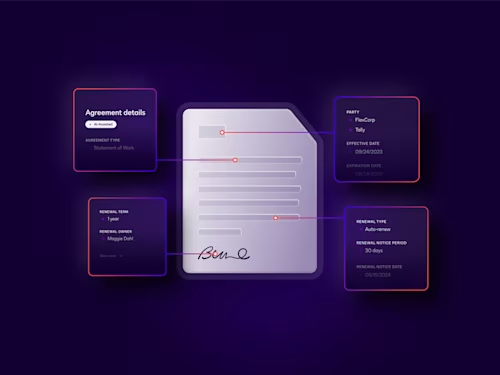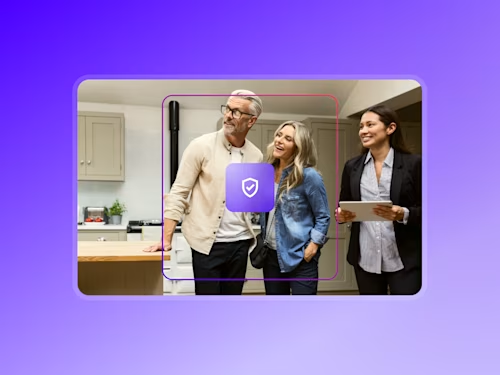
How Houston Methodist Is Reinventing Healthcare With a Touchless Experience
In our recent webinar, Michelle Standsbury and Docusign’s Christina S. Wong outline how Docusign made Houston Methodist’s vision a reality.

2020 has been a difficult year for many, but few industries have had to carry off more balancing acts than the healthcare industry. As the COVID-19 pandemic continues, health care providers face a unique question: how do you continue providing critical support for patients, while limiting the risks associated with a global health crisis?
“Even as things were opening up, people were weary. They didn’t know if it was safe to come back,” says Michelle Standsbury, VP of Innovation at Houston Methodist, adding, “we know [with COVID that] people are delaying healthcare–which is never a good thing.”
To help create a safe, easy experience that patients could trust, Michelle and her team at Houston Methodist decided that a touchless solution was needed to facilitate remote and outpatient visits. In our recent webinar, How Houston Methodist Is Reinventing Healthcare, Michelle Standsbury and Docusign’s Christina S. Wong outline how Docusign made Houston Methodist’s vision a reality.
Creating a culture of innovation
As stated by Sirina Keesara in the New England Journal of Medicine, “In the face of the Covid-19 outbreak, Americans are waking up to the limitations of their analogue health care system. It seems clear that we need an immediate digital revolution to face this crisis.” The holes in the operational efficiency of the healthcare system have always been there, but recent events brought them to light.
To answer the call, Houston Methodist’s existing, innovation-led culture certainly helped. “Innovation is important for all of our staff,” says Michelle. At every level of the organization’s hierarchy, ideas are always brewing. “We know that we have to be continually looking at how we can improve, because what was an improvement last year is now just the norm.”
Establishing a vision for the future
For any health care provider, the patient is at the heart of every decision to create change within the organization. As Houston Methodist faced the reality of providing patients with a seamless online experience, it was their patients’ needs that inspired a new vision for the future.
Michelle says that patients are looking for quick, easy health care solutions that they can trust. “If you don’t make it easy, if you don’t make it intuitive, they will go elsewhere,” she says, adding “patients want you to know them. They don’t want to have to repeat their information every single time they need to register for a visit.” For Houston Methodist, optimizing the newly evolved patient experience meant promoting:
flexible, easy scheduling
seamless check-in and follow-up procedures
free prescription delivery
clinically efficient workflows
enhanced communication (mobile, email, etc.)
data transparency
an interconnected health system
When COVID-19 hit Houston Methodist, Michelle and her team decided that going touchless at every stage of the patient journey was imperative for boosting patient confidence. This encompassed scheduling and arrival—to checkout and post-visit screenings.
Houston Methodist had the vision, but they didn’t have the right vendor to support their new technological infrastructure. That’s where Docusign came in.
How Houston Methodist created their touchless experience
Like most businesses, Houston Methodist was familiar with Docusign as a pioneer of the electronic signature. But they hadn’t been aware of Docusign’s full-scale contract lifecycle management (CLM) capabilities. It was, again, Houston Methodist’s company-wide culture of innovation that led the charge. “One of our directors of patient access was thinking about all of the forms we need signed during the patient onboarding process,” says Michelle. After using Docusign personally, the director saw an opportunity to implement the technology on a larger scale.
Houston Methodist started with a pilot in one facility and immediately increased their number of fast-track registrations by 75%. They expected Docusign to have an immediate impact on their operational capacity and drastically improve the client experience, but Houston Methodist didn’t foresee Docusign’s ability to streamline and automate business procedures in other arms of the organization. Docusign’s use cases for Houston Methodist quickly expanded to include:
Patient access: outpatient registration packets, records, and scheduling
HR: immigration, employment, benefits, and wellness
Medical records: birth, registration, and release of information authorization
Research: clinical trial paperwork
Physician organization: COVID-19 testing consent (integrated w/ text messaging)
Case management: important medicare messaging
System psychiatry: involuntary admission paperwork and records
IT: project documentation, contract management, and access requests
Supply chain: contracts and purchase card approval
Other areas: contracts, approvals, and department-specific clinical documentation
Additionally, as with any organization in the healthcare industry, security and patient confidentiality are paramount. All outside vendors must pass a thorough inspection from the company’s data and security governance committee. Docusign was given the green light immediately, allowing the team to quickly set up their organization’s fully remote, touchless experience.
Digitization and the future of the healthcare industry
By automating critical operational and administrative procedures, Houston Methodist was able to build stronger patient-provider relationships, effectively protect patient data, and generate a return on their investment—all while laying a foundation for the future of innovation in the healthcare industry.
If you’re interested in learning more about how Docusign’s robust product suite helped Houston Methodist create a secure and intuitive experience for their patients and lay the groundwork for the future scalability of their digital infrastructure, watch the full webinar today!
Related posts
Docusign IAM is the agreement platform your business needs


